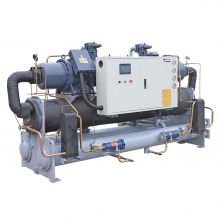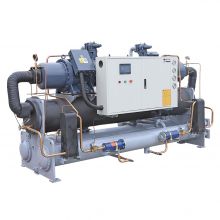We offer you 100% custom-made service Inquiry
Temperature control is a crucial factor in the winemaking process, directly influencing fermentation, flavor development, and the overall quality of the final product. Without precise temperature regulation, the fermentation process can become unstable, leading to undesirable flavors and inconsistencies in wine production. Chillers play an essential role in maintaining optimal conditions for fermentation, ensuring winemakers achieve the desired taste, aroma, and structure in their wines.

Chillers function by regulating the temperature of fermentation tanks, preventing extreme fluctuations that could negatively impact the wine. The key components of a chiller system include a compressor, condenser, evaporator, and expansion valve, all of which work together to extract heat from the fermentation process and maintain stability.
Compression: The refrigerant gas is compressed, increasing its pressure and temperature.
Condensation: The high-pressure gas flows through the condenser, where it releases heat and transforms into a liquid.
Expansion: The liquid refrigerant passes through an expansion valve, lowering its pressure and temperature.
Evaporation: The cold refrigerant absorbs heat from the fermentation tanks, effectively cooling them before the cycle repeats.
Temperature regulation is essential for producing high-quality wine. Different types of wine require specific fermentation temperatures:
Red Wines: Typically ferment between 70°F and 85°F (21°C to 29°C) to ensure proper tannin extraction and deep color development.
White Wines: Require cooler fermentation temperatures, ranging from 45°F to 60°F (7°C to 16°C), to preserve delicate aromas and flavors.
Sparkling Wines: Demand even lower temperatures to maintain freshness and effervescence during fermentation.
Winemakers employ several cooling techniques to maintain precise fermentation conditions:
Fermentation Tanks with Cooling Jackets – Stainless steel tanks equipped with cooling jackets allow for direct temperature control.
Glycol Chiller Systems – A mixture of glycol and water circulates through a network of cooling lines, ensuring stable fermentation temperatures.
Automated Temperature Regulation – Sensors and solenoid valves adjust cooling levels automatically based on real-time temperature readings.
Pre-Fermentation Grape Cooling – Chillers help reduce grape temperature before fermentation, enhancing control over the process.

Accurate temperature regulation during fermentation affects several critical aspects of wine quality:
Flavor Development: Prevents the production of undesirable esters and off-flavors.
Aroma Retention: Helps preserve delicate aromatic compounds, especially in white and sparkling wines.
Tannin Structure and Color Stability: In red wines, temperature influences the extraction of tannins and pigments.
Fermentation Efficiency: Keeps yeast activity consistent, preventing stuck or sluggish fermentation.
For winemakers, achieving consistent quality requires precise temperature management. Chillers play an indispensable role in optimizing fermentation conditions, enhancing flavor profiles, and ensuring wine stability. By investing in high-performance winery chillers, such as those developed by Kaydeli, wineries can maintain control over the fermentation process and produce wines of superior quality.
Kaydeli provides advanced cooling solutions tailored to the winemaking industry. Our high-quality chillers ensure precise temperature regulation, energy efficiency, and long-term reliability. Contact us today to learn how our innovative temperature control systems can enhance your winery operations.
By continuing to use the site you agree to our privacy policy Terms and Conditions.